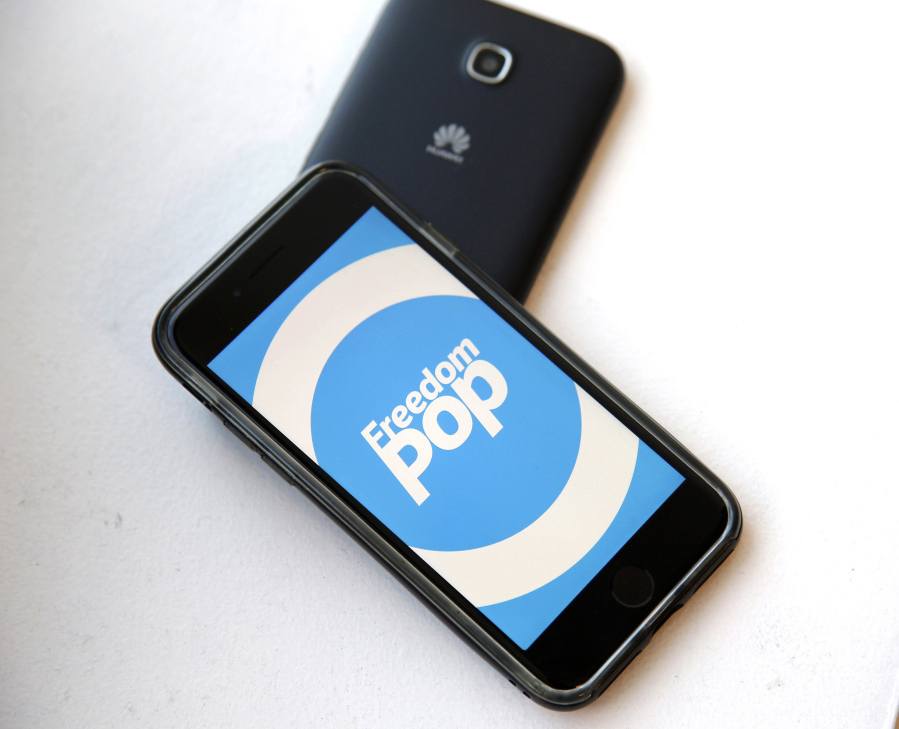LOS ANGELES — There are times when FreedomPop founder Stephen Stokols would get better coverage or service using a competing cellular carrier. Like when he got booted from his own provider after getting tripped up by confusing settings.
But Stokols — along with his 2 million customers — has been willing to suffer occasional headaches in exchange for an unbeatable deal. Half the people using FreedomPop pay nothing for cellphone service, including mobile internet access.
There are limits on monthly usage (500 megabytes in the U.S.) and caps on calling and texting (three hours and 500 messages). Finding a shop, reaching a customer service agent or buying a phone from FreedomPop can be complicated. And users need a credit card.
Stokols contends, though, that many should find the trade-offs attractive because he pegs median mobile data usage in the U.S. at about 700 megabytes per month.
Customers can pay a few dollars to pick up extra data, up to about $20 a month for unlimited data, calling and texting. Not a bad deal compared with $40 most elsewhere.
FreedomPop can afford to slash prices thanks to its departures from industry conventions, including accepting lower profit margins.
The Los Angeles company says its emergence over the last six years has led to imitation from T-Mobile, a near-acquisition for as much as $450 million by Sprint and price cuts at Verizon and AT&T. And all that has come while serving just a fraction of the 18 percent of U.S. cellphone subscribers not tied to a Big Four carrier, according to market researcher Besen Group.
Outside the U.S., FreedomPop is licensing technology in Italy and Mexico and gaining users in Spain and the United Kingdom. It’s targeting 100 million users worldwide by 2020, some through partners that collectively have 500 million subscribers.
“Touching 20 percent of them is not unrealistic,” Stokols says.
But he must decide how far to see through his vision to give away more and more data. The company is reviewing a previously undisclosed acquisition offer, but discussions are continuing about potentially going public next year.
FreedomPop has raised $109 million in venture capital, and the company could become self-reliant soon if, as expected, it generates profit for the first time this winter. Stokols declined to provide specific financial figures.
“We want to get to where communications is a free utility everywhere,” Stokols said. “If you have internet, you’re at an instant advantage.”
Profiling users
FreedomPop’s investors say that the company is special because its marketing costs, about $10 per customer, are lower than anyone else’s. Free offers tend to get noticed with little spending on advertising. That lets FreedomPop charge customers less.
Stokols says the company’s goal is to get people paying — not necessarily to twist them into paying as much as possible. “That’s what is different from a typical carrier,” Stokols said.
FreedomPop collects data about users’ backgrounds and phone habits. Stokols said the company can identify who’s likely to be a freeloader who will never pay — and in turn, the company doesn’t waste time pitching to such users. Instead it closely studies users who pay for extra features to find new subscribers with similar characteristics who may be more likely to spend in the future.
Some may be open to spending a couple of dollars for data compression, to help them stay under data limits. Others may benefit from international calling and not realize it. The average monthly revenue per paying user is about $15, compared with about $45 at the major carriers.
Some customers have accused FreedomPop of being sneaky with terms and conditions. Stokols acknowledges his company must improve on warning users about forthcoming charges or service suspensions as limits near. He has responded with new self-serve account management tools that reduce the need for customer service agents or stores.
Investors say they’re not losing sleep over pockets of negative feedback.
“There’s ambitiously excessive desires from consumers,” said Mark Tluszcz of Mangrove Capital, a FreedomPop shareholder. But “when you’re offering a real cheap service sometimes you have to cut corners on service or quality. We have no ambitions to be whiter than white snow.”
FreedomPop tries to prevent itself from being swindled by requiring most customers to have a credit card. “We have no wiggle room for customer service or fraud,” Stokols said.
The company further keeps costs low by holding little equipment. It provides service through free Wi-Fi hotspots and the cellphone towers of Sprint and AT&T.
FreedomPop pays Sprint and AT&T based on customer usage. The two big carriers can see what websites FreedomPop users are checking out, but neither they nor FreedomPop can record or monitor calls as long as only FreedomPop users are participants.



